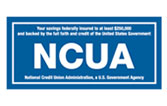Please read this important information from the IRS regarding your January stimulus payment.
As of January 4, 2021, we have processed all the Stimulus payments we have received to date.
The following is a press release from the IRS concerning the Economic Impact Payments:
IR-2021-06, January 7- Starting this week, the Treasury Department and the Internal Revenue Service are sending approximately 8 million second Economic Impact Payments (EIPs) by prepaid debit card.
These EIP Cards follow the millions of payments already made by direct deposit and the ongoing mailing of paper checks that are delivering the second round of Economic Impact Payments as rapidly as possible.
For those who don’t receive a direct deposit, they should watch their mail for either a paper check or a prepaid debit card. To speed delivery of the payments to reach as many people as soon as possible the Treasury’s Bureau of Fiscal Service is sending payments out by prepaid debit card. IRS and Treasury urge eligible people who don’t receive a direct deposit to watch their mail carefully during this period.
The prepaid debit card, called the Economic Impact Payment card, is sponsored by the Bureau of the Fiscal Service and is issued by Treasury’s financial agent, MetaBank®, N.A. The IRS does not determine who receives a prepaid debit card.
Taxpayers should note that the form of payment for the second mailed EIP may be different than the first mailed EIP. Some people who received a paper check last time might receive a prepaid debit card this time, and some people who received a prepaid debit card last time may receive a paper check.
More information about these cards is available at EIPcard.com.
IR-2021-01, January 4, 2021 – The Internal Revenue Service today urged people to visit IRS.gov for the most current information on the second round of Economic Impact Payments rather than calling the agency or their financial institutions or tax software providers. IRS phone assistors do not have additional information beyond what’s available on IRS.gov.
The IRS and the Treasury Department began issuing a second round of Economic Impact Payments, often referred to as stimulus payments, last week.
The direct deposit payments may take several days to post to individual accounts. Some Americans may have seen the direct deposit payments as pending or as provisional payments in their accounts before the scheduled payment date of January 4, 2021, which is the official date funds are available.
Paper checks also began going out and will continue to be sent through January. Some people will be mailed debit cards in January, and the IRS urges people to carefully check their mail. Mailed payments will require more processing and mailing time. Those who reside abroad will have longer wait times for checks as disruptions to air travel and mail delivery in some countries will slow delivery.
The IRS emphasizes that there is no action required by eligible individuals to receive this second payment. The payments are automatic, and people should not contact their financial institutions or the IRS with payment timing questions.
Eligibility
Generally, U.S. citizens and resident aliens who are not eligible to be claimed as a dependent on someone else’s income tax return are eligible for this second payment.
Eligible individuals will automatically receive an Economic Impact Payment of up to $600 for individuals or $1,200 for married couples and up to $600 for each qualifying child. Most people who have an adjusted gross income for 2019 of up to $75,000 for individuals and up to $150,000 for married couples filing joint returns and surviving spouses, will receive the full amount of the
second payment. For filers with income above those amounts, the payment amount is reduced.
Checking the status of a payment
Starting today, people can check the status of both their first and second payments by using the “Get My Payment”
tool, available in English and Spanish only on IRS.gov.
Payment not received or less than expected? Claim on 2020 tax return
Payments started going out last week and will continue through mid-January. Direct deposit payments are being made first to those that have valid routing and account information on file for direct deposit purposes. Because of the speed at which IRS issued this second round of payments, some payments may have been sent to an account that may be closed or no longer active. By law, the financial institution must return the payment to the
IRS, they cannot hold and issue the payment to an individual when the account is no longer active. While the IRS
is exploring options to correct these payments, if you have not received your full payment by the time you file
your 2020 tax return, you may claim the Recovery Rebate Credit on your tax return.
The credit is figured like the Economic Impact Payment, except that the credit eligibility and the credit amount are based on the 2020 tax year information, including income.
For people who received a partial Economic Impact Payment, they can take the Recovery Rebate Credit for any
remaining amount they’re eligible for by completing line 30 of the 2020 Form 1040 or 1040-SR.
Changing bank account or mailing information
The IRS cannot change payment information, including bank account or mailing information. If an eligible taxpayer does not get a payment or it is less than expected, it may be claimed on the 2020 tax return as the Recovery Rebate Credit. Remember, Economic Impact Payments are an advance payment of what will be called the Recovery Rebate Credit on the 2020 Form 1040 or Form 1040-SR.
More information
For more information about Economic Impact Payments and the 2020 Recovery Rebate Credit, visit IRS.gov/eip.
People can check the status of their payment at IRS.gov/GetMyPayment. For other COVID-19-related tax relief, visit IRS.gov/Coronavirus.



